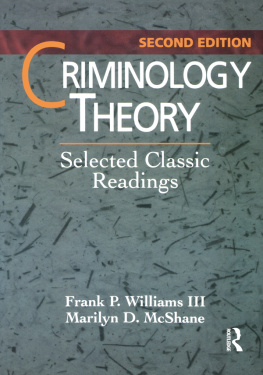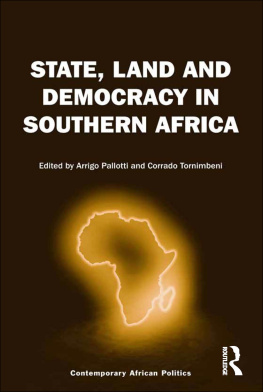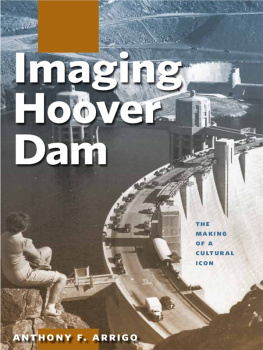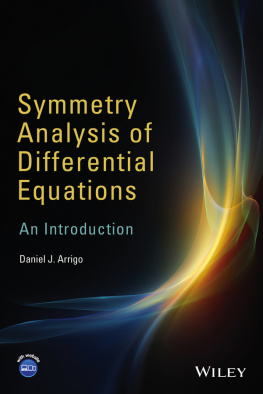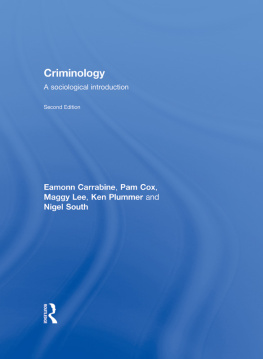2006 by the Board of Trustees
of the University of Illinois
All rights reserved
Manufactured in the United States of America

This book is printed on acid-free paper.
1 2 3 4 5 c p 5 4 3 2 1
Library of Congress Cataloging-in-Publication Data Philosophy, crime, and criminology / edited by Bruce A. Arrigo and Christopher R. Williams.
p. cm. (Critical perspectives in criminology)
Includes bibliographical references and index.
ISBN-13: 978-0-252-03051-2 (cloth : alk. paper)
ISBN-10: 0-252-03051-6 (cloth : alk. paper)
ISBN-13: 978-0-252-07289-5 (pbk. : alk. paper)
ISBN-10: 0-252-07289-8 (pbk. : alk. paper)
1. Criminology.
2. Philosophy.
3. CrimePhilosophy.
I. Arrigo, Bruce A.
II. Williams, Christopher R., 1972
III. Series.
HV6025.P494 2006
364dc22 2005017094
INTRODUCTION
Philosophy, Crime, and Theoretical Criminology
CHRISTOPHER R. WILLIAMS AND BRUCE A. ARRIGO
Historically, philosophers have written very little about the subject of crime. Similarly, criminologists have written very little about the subject of philosophy. In both cases, the linkages between philosophy and crime have been left impliciteither in the more general metaphysical, ethical, and legal writings of philosophers, or the theoretical speculations of criminologists. However, to be sure, law and justice have been particularly significant concerns throughout the history of philosophy (e.g., Solomon & Murphy, 1990; Friedrich, 1963). From Plato, through Aquinas and Augustine, to Kant, Bentham, and Beccaria, many of the most important philosophical minds have confronted the complexities of social obligation, social offense, social control, and societal responses to crime directly and deeply. Yet hardly any of these same philosophers saw fit to address, in any systematic or comprehensive fashion, the behavior that makes necessary and possible recurrent debates on issues such as the meaning of justice, the proper reach of the criminal law, and the ethical underpinnings of criminal punishment.
Indeed, crime, it seems, has never been regarded as a suitably philosophical issue. Admittedly, at various historical junctures, the subject of criminal behavior has been taken up by legal philosophy, medical philosophy, theology, and, as a subset of immoral conduct, by ethics. This notwithstanding, crime per se has been and remains conspicuously absent from the sorts of general ontological, epistemological, ethical, and aesthetical analyses that might suggest new perspectives and alternative directions for its general comprehension and, by consequence, for its specific applications in law and justice studies.
At the same time, the discipline of philosophy and its corresponding intellectual subdivisions (i.e., ontology, epistemology, ethics, and aesthetics) have never been properly regarded as criminological concernssave, perhaps, the ethical dilemmas and quandaries that emerge as issues of professional or practical interest within legal, law enforcement, and correctional circles. Regrettably, as criminology has evolved into an increasingly interdisciplinary and independent field with its own scholars and practitioners, the role of philosophical speculation, argument, analysis, and critique in matters of criminological import has withered into veritable nonexistence. Even in pedagogical formulations, criminology and philosophy are mostly regarded as distinct, and perhaps unrelated, subjects. For example, in colleges and universities around the world they typically represent separate departments, housed in different colleges, and often occupying space in entirely distinct physical quarters. Criminologists rarely interact with philosophers and vice versa. Criminology departments do not oftenif everoffer courses whose clear objective is to entertain and expose the connections between what criminology does and what philosophy is. Moreover, in many criminology programs, students may earn their degree without ever having taken a course in philosophy. At best, they are introduced to philosophical issues only by way of an occasional footnote or two in books and courses on theoretical criminology. Even then, such footnotes infrequently appear (see, however, Einstadter & Henry, 1995).
Yet criminology is fundamentally wedded to philosophy in countless ways, and the crossroads of criminology and philosophy are ripe for exposition and assimilation by scholars in both camps. This very sentiment was the basis for creating the present volume. As such, many of the implicit historical associations between crime and philosophy, as well as relevant philosophical concepts and arguments, represent topical foci for the chapters that follow. We hasten to add, however, that the philosophy-criminology union entertained in this book is not intended to be exhaustive. Rather than offering a comprehensive portrait of a philosophical criminology, we have instead chosen to concentrate on selected points of intersection with the promise that access to further critical junctures will most assuredly follow in subsequent works. Thus, rather than attempting to fill a gap in the literature, our primary interest is indexical; that is, we hope to point out such a gap, evocatively contributing to a more thorough and enlightened consideration of this underexamined relationship.
In the interest of an introduction, the remainder of this chapter pursues several goals. First, we address the historical development of the concept and study of crime as it has progressed from antiquity, through the Middle Ages, into modernity and, more recently, postmodernity. Admittedly, our historical treatment is modest, omitting several shifts in the evolution of the philosophy of crime. However, our intention is to provide merely a sense of the ways in which philosophy has addressed the issue of crime and, further, how such conceptions have been subjected to broader intellectual speculation and social transformation. Second, we offer some suggestions as to how a philosophical criminology or the introduction of philosophy into criminological analysis might occur. In other words, we address the specific value that philosophy ostensibly holds for the study of crime. In doing do, we briefly address each of the four core areas of philosophy (i.e., metaphysics or ontology, epistemology, ethics, and aesthetics), attending to their potential relevance for studies of crime. Given that the chapters in this volume flesh out many of these intersections and potentialities, our primary aim is to expose the reader to the contours of these philosophical subdivisions, providing in each instance an overview of and reference to several constitutive concerns. We conclude the introductory chapter with a synopsis of the books organization and the substantive chapters representing this volume.
Crime in Philosophy
Many students and scholars alike often fail to recognize just how recent the temporal separation actually is between philosophy and criminology, the social sciences, and science more generally. We forget or, perhaps, never consider that only several centuries ago, the boundaries between what are now considered to be the physical and social sciences and philosophy were not so clearly demarcated (for a discussion of these boundaries, see, e.g., Benton & Craib, 2001). For nearly two thousand years, social science and philosophy were one and the same. The psychologists, sociologists, and criminologists of antiquity and the Middle Ages were


 This book is printed on acid-free paper.
This book is printed on acid-free paper.
